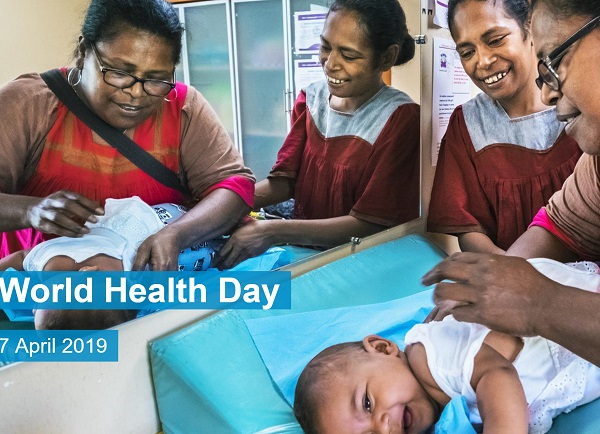 Credit: WHO
Credit: WHO
Luxembourg will focus on the importance of early detection and prevention this World Health Day, celebrated on 7 April 2019.
Every year, World Health Day celebrates the anniversary of the creation of the World Health Organisation (WHO) and aims to stimulate reflection on important public health issues. This year, the Luxembourg Ministry of Health will focus on early detection and prevention, including that of chronic diseases.
Some developments such as aging, environmental impact and healthy living of the population require an increased emphasis on prevention as a central element of actions to improve the health of citizens. To improve the fight against chronic diseases, especially those caused by lifestyle risk factors, the Health Ministry will actively pursue the promotion of healthy lifestyles. Indeed, 40% of cancers could be prevented by reducing smoking, alcohol, obesity and sedentary lifestyle.
For more than 20 years, Luxembourg has carried out various actions in the fight against cancer. The 2014-2018 National Cancer Plan (PNC) is the first national plan to unite all actors around this illness. The plan's objectives will be resolutely pursued under the new cancer plan which will cover the period 2019-2023. In this context, the Mammography Programme will aim to detect signs of breast cancer at an early stage and thus give women a better chance of remission. The Mammography Programme detects about 120 cancers a year.
In addition, the 2016-2020 National Tobacco Plan aims first and foremost to prevent smoking among children and young people, help people stop smoking and protect the public against second-hand smoke. More than 500 projects and activities have also been carried out over the past ten years under the "Gesond iessen, Méi bewegen" (GIMB) initiative. The general objective of the GIMB 2018-2025 national action plan is to promote balanced nutrition and regular physical activity and to combat the problem of obesity and sedentary lifestyle.
While, according to the WHO, the percentage of expenditure devoted to the prevention policy should be between 2% and 3%, these represent less than 0.5% in Luxembourg - compared to 46.9% for hospital care and 21% for medical care. Meanwhile, Luxembourg's per capita health expenditure is the highest in the EU. However, as a percentage of GDP, Luxembourg spends much less on health than most other EU countries (6.0% compared to 9.9% of GDP in the EU). There is therefore room to make greater use of prevention as a public health measure in Luxembourg and the Ministry of Health intends to continue its efforts in this area.








